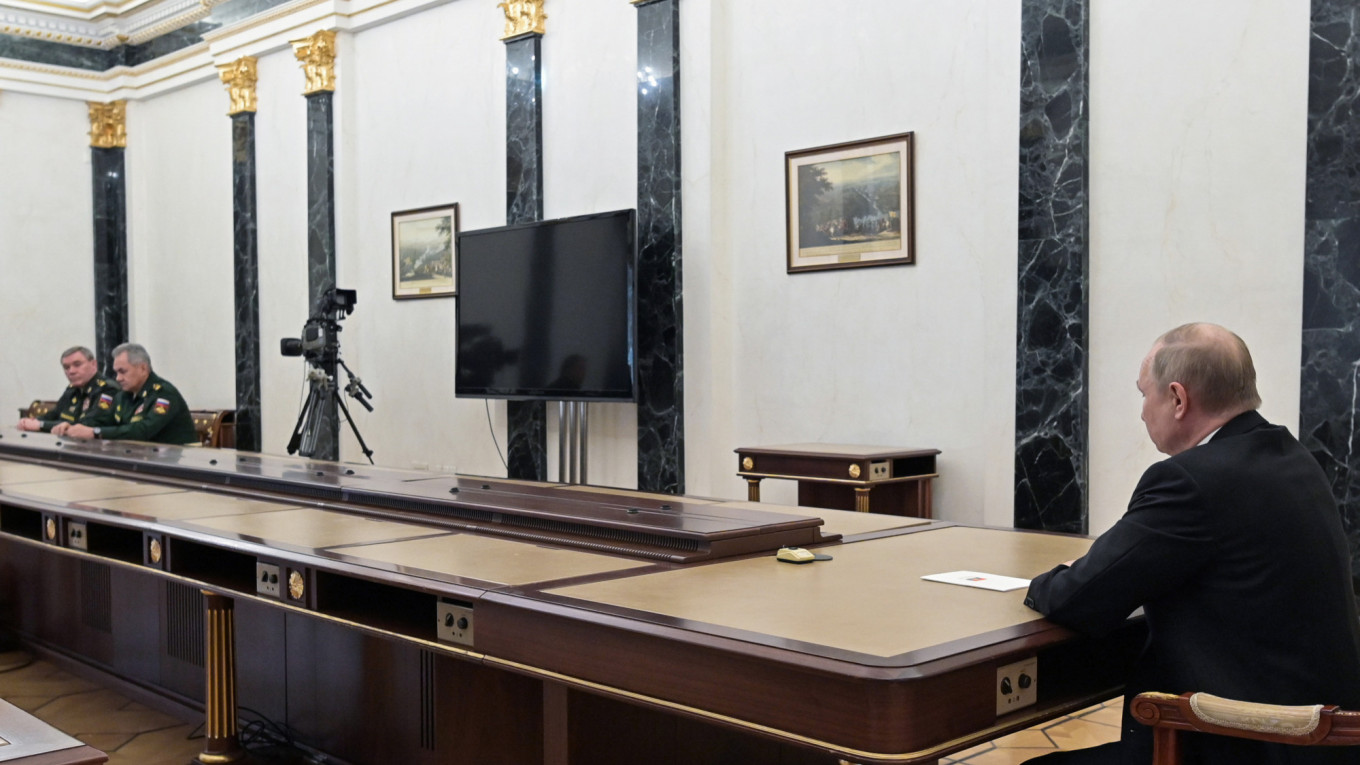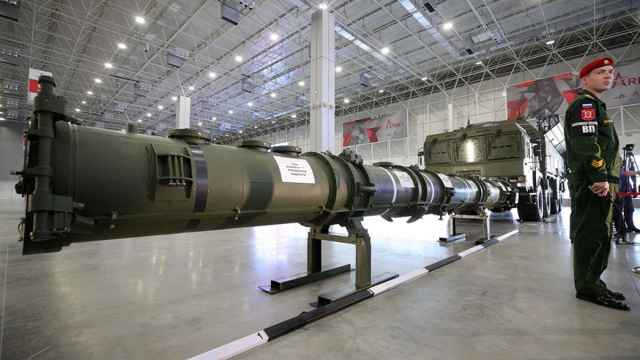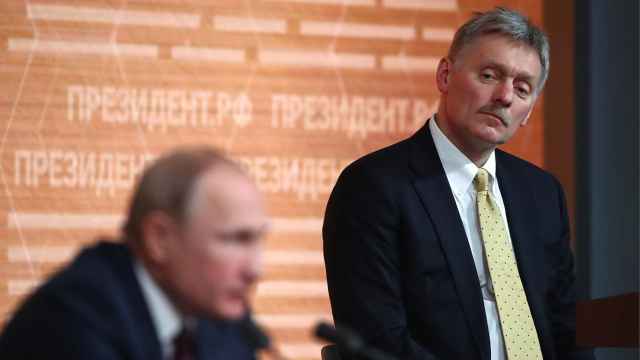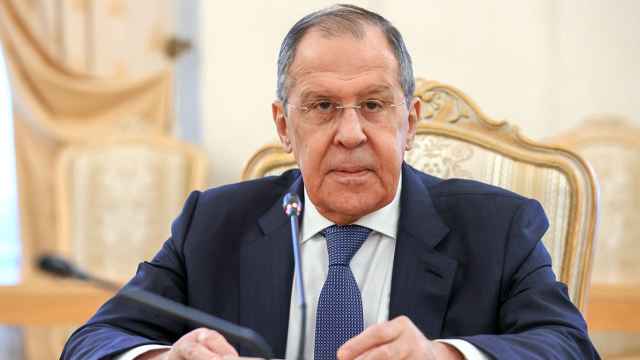Russian President Vladimir Putin's announcement that his nuclear forces were on alert sparked outcry in the West as the invading troops faced stiff resistance on Monday.
The UN General Assembly will hold a rare emergency session Monday to discuss the conflict, which has claimed dozens of lives and raised fears that it will displace millions of people.
Ukraine has also said it had agreed to send a delegation to meet Russian representatives on the border with Belarus, which would be the two sides' first public contact since war erupted.
Russia invaded on Thursday and quickly announced it had neutralized key Ukrainian military facilities, but fierce fighting has since raged.
Ukraine forces, backed by Western arms, are stymieing the advance of Russian troops, according to the United States, which has led Western condemnation and a campaign of sanctions.
Putin ordered Sunday Russia's nuclear forces onto high alert in response to what he called "unfriendly" steps by the West. Russia has the world's largest arsenal of nuclear weapons and a huge cache of ballistic missiles.
The United States, the world's second largest nuclear power, slammed Putin's order as "totally unacceptable."
Germany said Putin's nuclear order was because his offensive had "halted" and was not going to plan.
Ahead of the planned talks with Russia and as Ukrainian forces defended key cities, Foreign Minister Dmytro Kuleba voiced defiance.
"We will not capitulate, we will not give up a single inch of our territory," Kuleba said.
Ukrainian President Volodymyr Zelensky said he was skeptical about the talks.
"As always: I do not really believe in the outcome of this meeting, but let them try," he said.
'Brutal' night
On day four of an invasion that stunned the world, Ukrainian forces said Sunday they had defeated a Russian incursion into Ukraine's second city Kharkiv, 500 kilometers (310 miles) east of Kyiv.
A regional official, Oleg Sinegubov, said Kharkiv had been brought under Ukrainian control and the army was expelling Russian forces.
Moscow has made better progress in the south, however, and said it was besieging the cities of Kherson and Berdyansk.
Both are located close to the Crimean peninsula, which Russia annexed from Ukraine in 2014, and from which it launched one of several invasion forces.
Ukrainian officials said they were fighting off Russian forces in several other areas, and claimed that 4,300 Russian troops had been killed.
In Kyiv, many residents spent another night in shelters or cellars as Ukrainian forces said they were fighting off Russian "sabotage groups."
But Sunday was relatively calm compared to the first days of fighting and the city was under a blanket curfew until Monday morning.
Ukraine has called on its own civilians to fight Russia, with a brewery in Lviv in the country's west switching its production line from beers to bombs, making Molotov cocktails for the volunteer fighters.
Western sources said the intensity of the resistance had apparently caught Moscow by surprise.
Ukraine has reported 198 civilian deaths, including three children, since the invasion began and Russia has acknowledged for the first time that a number of its forces had been killed or injured.
The UN has put the civilian toll at 64 while the EU said more than seven million people could be displaced by the conflict.
"We are witnessing what could become the largest humanitarian crisis on our European continent in many, many years," the EU commissioner for crisis management Janez Lenarcic said.
At the Medyka border crossing with Poland, volunteer Jasinska said the long line of arrivals, mostly women and children, need warm clothes.
Crossing Medyka with his family, Ajmal Rahmani, an Afghan who fled Afghanistan for Ukraine four months before the U.S withdrawal, told AFP: "I run from one war, come to another country and another war starts. Very bad luck".
'Stand together'
The United States and its allies continued to try and build economic and military pressure.
The U.S. and Europe "need to really stand together... to both the aggressive actions of Russia against Ukraine but also the threatening rhetoric coming from Moscow," said NATO chief Jens Stoltenberg.
NATO will deploy its rapid response force for the first time to bolster its eastern flank.
EU member states also closed their airspace to Russian planes and many pledged arms for Ukraine — but stressed they would not themselves intervene militarily.
Brussels also announced it would provide 450 million euros ($500 million) for Ukraine to buy weapons and ban Russian Central Bank transactions, as well as restricting two Moscow-run media outlets.
The West said it would remove some Russian banks from the SWIFT bank messaging system, and freeze central bank assets.
The Kremlin has brushed off sanctions, including those targeting Putin personally, as a sign of Western impotence.
However the European Central Bank warned Monday that the European subsidiary of the Russian state-owned Sberbank was facing bankruptcy.
The Russian ruble fell almost 30% on Monday morning.
British energy giant BP announced Sunday it was pulling its 19.75% stake in Rosneft, a blow to Russia's key oil and gas sector, which is partly reliant on Western technology.
Also in response to hostilities, FIFA ordered Russia to play its home international fixtures in neutral venues and warned it was considering banning it from the 2022 World Cup.
Oil prices have also surged in response to the crisis, with West Texas Intermediate crude up more than 5% in early trade Monday.
Putin has said Russia's actions are justified because it is defending Moscow-backed separatists in eastern Ukraine.
The rebels have been fighting Ukrainian government forces for eight years in a conflict that has killed more than 14,000 people.
A Message from The Moscow Times:
Dear readers,
We are facing unprecedented challenges. Russia's Prosecutor General's Office has designated The Moscow Times as an "undesirable" organization, criminalizing our work and putting our staff at risk of prosecution. This follows our earlier unjust labeling as a "foreign agent."
These actions are direct attempts to silence independent journalism in Russia. The authorities claim our work "discredits the decisions of the Russian leadership." We see things differently: we strive to provide accurate, unbiased reporting on Russia.
We, the journalists of The Moscow Times, refuse to be silenced. But to continue our work, we need your help.
Your support, no matter how small, makes a world of difference. If you can, please support us monthly starting from just $2. It's quick to set up, and every contribution makes a significant impact.
By supporting The Moscow Times, you're defending open, independent journalism in the face of repression. Thank you for standing with us.
Remind me later.





